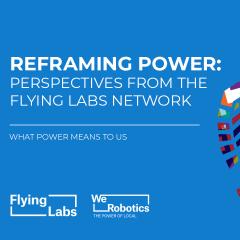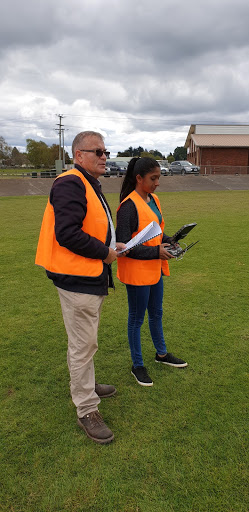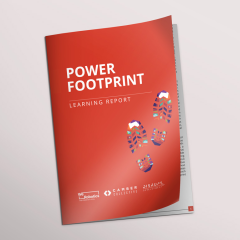
Flying Labs Turn Pro with Drone Pilot Licenses
October 29th, 2018


Drone pilots across the global network of Flying Labs have logged hundreds upon hundreds of flight hours over the years. Many started flying well before drone regulations were in place in their own countries. Today, the majority of these countries are working on setting up the standards, processes and accreditation mechanisms necessary to issue their own drone pilot or remote pilot licenses. This presents a challenge for Flying Labs as they seek to obtain these licenses for their most experienced pilots. These pilots need to take accredited courses in Europe, North America, Australia or South Africa to get their drone or remote pilot licenses but doing so is expensive (international flights, lodging, etc.) and also time consuming. In South Africa, for example, it can take between 7-10 days to complete the training necessary to get a drone pilot license. And there’s no guarantee that other Civil Aviation Authorities in Africa will eventually recognize a South African license any time soon.
So we’re working hard to find practical and affordable solutions to this challenge. As an important first step, we’re particularly pleased to announce our formal partnership with Global Drone Solutions (GDS), a Civil Aviation Safety Authority (CASA) accredited drone pilot training company based in Australia. GDS offers a combination of online and offline trainings necessary to obtain a remote pilot license. Mahmood Hussein, GDS CEO, is very generously providing the online component of the training for free to the growing network of Flying Labs in Africa, Asia, Latin America and Oceania.
 Tanzania, Kenya and South Pacific Flying Labs already completed this training in September comprised of 10 online modules. An additional 5 Flying Labs will be taking the online training in November with an additional 10 Flying Labs in early 2019. The online component focuses specifically on the theory section required for a drone pilot license. Upon completing this training, Flying Labs pilots are issued a certificate of completion by GDS, which already carries weight in many countries in which Flying Labs operate.
Tanzania, Kenya and South Pacific Flying Labs already completed this training in September comprised of 10 online modules. An additional 5 Flying Labs will be taking the online training in November with an additional 10 Flying Labs in early 2019. The online component focuses specifically on the theory section required for a drone pilot license. Upon completing this training, Flying Labs pilots are issued a certificate of completion by GDS, which already carries weight in many countries in which Flying Labs operate.
The Coordinator of Pacific Flying Labs, Amrita Lal, recently took both the online theory training and the offline practical training both offered by GDS in order to obtain her pilot license. GDS kindly extended their generosity further by offering to conduct the practical training in Australia at cost. Amrita successfully completed the 2-day practical section of the drone pilot license training in Australia along with three other candidates. This included approximately 5 hours of flight time, a 100-question theory assessment and a general English proficiency test for the Aviation Radio Operators Certificate (AROC). The focus of the training was evenly distributed among topics like aerodynamics, navigation, air law, battery management, meteorology, human factors, handling, usage, maintenance and transportation along with airmanship and the understanding of elements that affect mission planning. Amrita is now one of the first drone pilots in Fiji to have a CASA drone pilot license.
We’re very grateful to Mahmood and his team at GDS for this partnership and are already exploring ways to expand this meaningful collaboration further to bring additional services to the global network of Flying Labs. In addition, several Flying Labs are already in talks with the aviation authorities in their own countries in order to offer their support in the development and implementation of appropriate certification mechanisms.
Recent Articles

